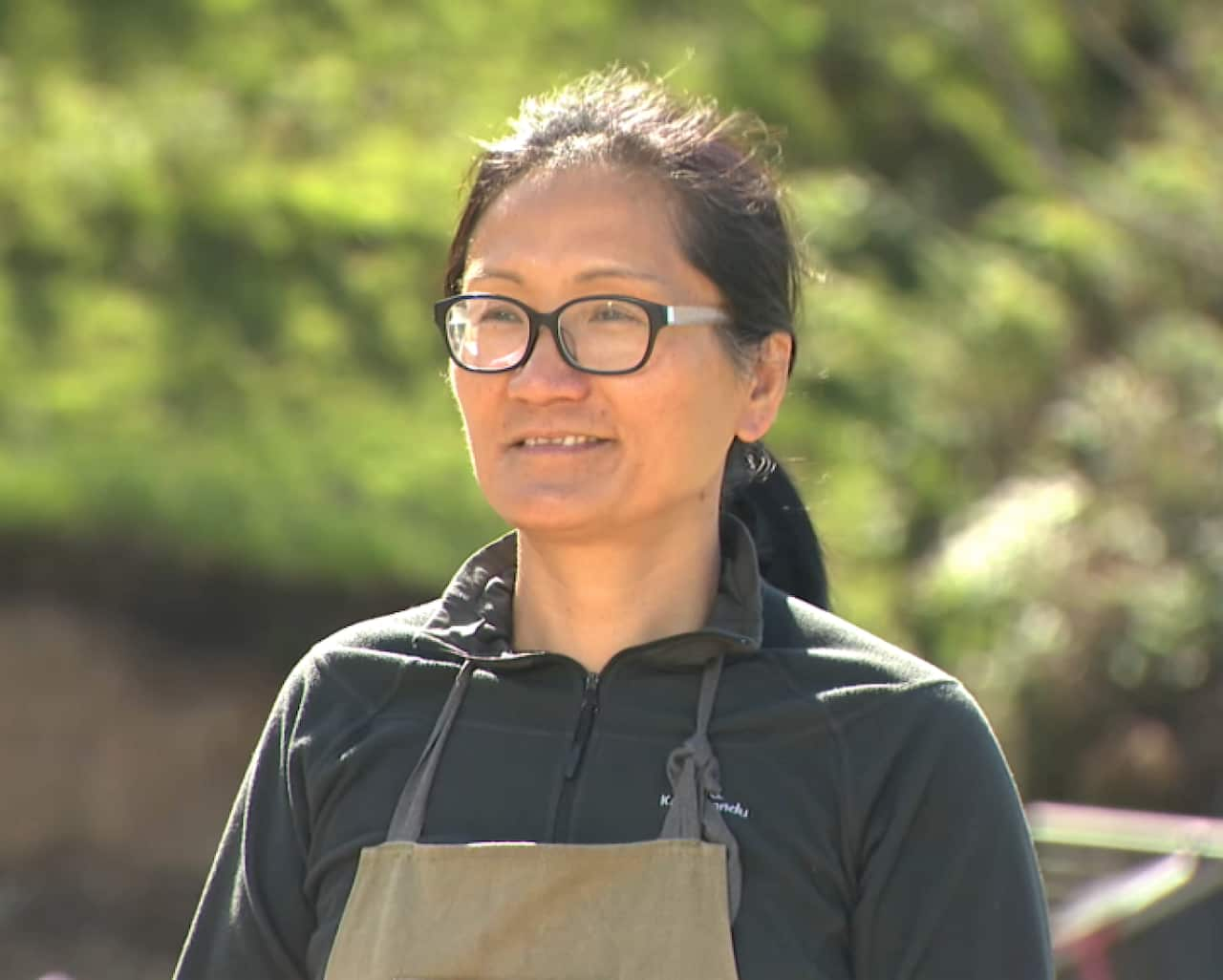Jenny Ye vividly recalls the day her farm was surrounded by flames. It was back in 2009, when catastrophic fires in Victoria resulted in Australia’s highest-ever loss of human life, with 173 fatalities.
“He called triple-zero, but because at that time it was chaos, no police or fire brigades were available – they were all too busy and people were dying everywhere”.

Victorian farmer Jenny Ye is preparing for bushfire season. Source: SBS / SBS Chinese
Those fires, now known as Black Saturday, killed 11 residents in and around Ye’s town of Flowerdale which is 95 kilometres north-east of Melbourne.
Fire warnings save lives but with temperatures across the country predicted to soar this week, there are warnings of an early and intense fire season.

Fire surrounding the Flowerdale area in 2009. Source: Supplied / Jenny Ye
The Bureau of Meteorology warns that several places could record temperatures of up to 14 degrees Celsius above average for this time of year.
“Most of the information which is available is in English. So often, people who don’t speak English or don’t prefer using English are left behind,” said Richard Ogetii, community executive officer of the Albury-Wodonga Ethnic Community Council.

Bushfire season is forecast to begin earlier this spring. Source: AAP / ANDREW BROWNBILL/AAPIMAGE
He’s been involved in research with La Trobe University to identify how the growing Indian and Congolese communities in the region engage with emergency services.
“And some people do not actually even know that triple-zero is the number to call for all the emergency services”.
One solution could be artificial intelligence, including a new AI-powered two-way video system. It can automatically translate information into a range of languages.
Tat Banerjee is the CEO of the company behind the technology, VideoTranslatorAI.

Tat Banerjee is the founder of videotranslator.ai Source: Supplied / Tat Banerjee
“Phase one of the pilot is where we’re going to be testing the one-way outbound communication, so emergency alerts, warnings for bushfires, things like that,” he said.
VicEmergency has also trialled another app which translates emergency warnings into Arabic and Simplified Chinese. The pilot is now under review.

Associate professor Raelene Wilding Source: Supplied / John Jiang: La Trobe University
Professor Raelene Wilding from La Trobe University says language is not the only issue.
“So, one of the real struggles is working out how do these things work here, and how do I respond in this situation, because what I used to know doesn’t apply”.

Richard Ogetii, communities executive officer of Albury-Wodonga Ethnic Community Council Source: Supplied
Ogetii says some migrant communities may distrust authorities or have cost concerns about emergency services.
“People worry about how to pay for an ambulance, or if fire engines came up, how will they afford it. So they don’t call.”

Black Summer aftermath at Marysville. Source: Getty / WILLIAM WEST/AFP via Getty Images
Inspector Ben Shepherd from the New South Wales Rural Fire Service urges emergency teams to better connect with multilingual groups.
That’s information Jenny Ye said would have been invaluable.

Jenny Ye on her property in Victoria. Source: SBS
“When you panic you don’t know how to overcome the problem. So more information from well-informed people, would make a big difference”.


